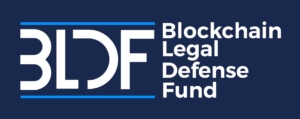Major Blockchain Lawsuits in 2024: Lessons and Precedents
The blockchain industry, though revolutionary, has faced increasing legal scrutiny as it matures. In 2024, several high-profile lawsuits have highlighted the complex intersection of blockchain technology and regulatory frameworks. These cases not only shape the legal landscape for blockchain enterprises but also offer valuable lessons for stakeholders navigating this volatile space.
Key Blockchain Lawsuits of 2024
1. Ripple vs. SEC
The ongoing saga between Ripple Labs and the U.S. Securities and Exchange Commission (SEC) continues to dominate headlines. The case revolves around whether XRP, Ripple’s native cryptocurrency, should be classified as a security. A recent court ruling partially in Ripple’s favor emphasized the need for clearer regulatory guidance. This case underscores the importance of compliance with securities laws for blockchain projects.
2. Binance and Regulatory Crackdowns
Binance, one of the world’s largest cryptocurrency exchanges, has faced significant legal challenges across multiple jurisdictions. Allegations of money laundering and operating without proper licenses have intensified scrutiny on the platform. The outcomes of these cases are likely to set global precedents for crypto exchange operations.
3. Tornado Cash Sanctions Lawsuit
The U.S. Department of Treasury’s sanctions on Tornado Cash, a decentralized mixing service, have sparked debate over privacy rights and anti-money laundering (AML) laws. Developers of Tornado Cash are challenging the sanctions, arguing that open-source code should not be criminalized. The resolution of this case will have far-reaching implications for privacy-focused blockchain projects.
Lessons Learned
1. Regulatory Compliance is Non-Negotiable
These lawsuits highlight the need for blockchain enterprises to prioritize regulatory compliance. From KYC (Know Your Customer) protocols to AML measures, adhering to legal requirements is crucial for avoiding penalties.
2. Transparency Builds Trust
Projects that maintain transparency in operations, funding, and governance are better positioned to weather regulatory scrutiny. Clear documentation and open communication with regulators can prevent misunderstandings.
3. Legal Preparedness is Essential
Blockchain startups must invest in robust legal counsel and proactive risk management. Understanding the legal frameworks of operating jurisdictions can help mitigate potential conflicts.
4. The Need for Clearer Regulations
Many of these lawsuits stem from the ambiguity surrounding blockchain regulations. Governments and regulatory bodies must work towards providing clear guidelines to foster innovation while ensuring accountability.
Impact on the Blockchain Industry
1. Increased Regulatory Oversight
The outcomes of these lawsuits are likely to lead to stricter regulatory oversight, particularly in areas such as securities classification, privacy tools, and exchange operations.
2. Shifting Investment Trends
Investors are becoming more cautious, favoring projects with strong compliance frameworks. This shift underscores the importance of legal risk assessment in blockchain investments.
3. Global Collaboration
The global nature of blockchain technology demands international cooperation among regulators. These lawsuits have highlighted the need for standardized regulations across borders.
Future Outlook
As the blockchain industry grows, legal challenges will continue to shape its trajectory. While lawsuits can disrupt operations, they also provide opportunities for the industry to mature and adapt. The key is for blockchain enterprises to learn from these cases, prioritize compliance, and engage with regulators to build a sustainable future.






Leave a Reply
Want to join the discussion?Feel free to contribute!